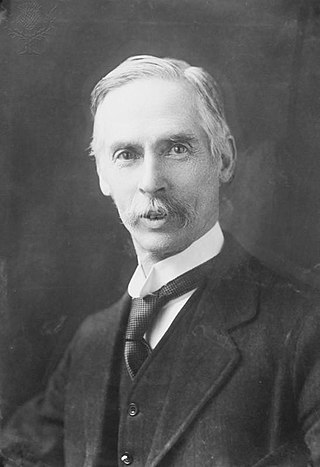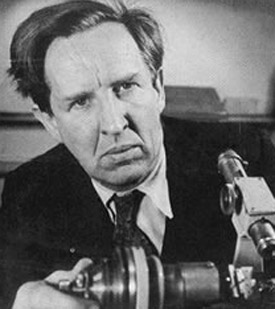Related Research Articles

William Olaf Stapledon – known as Olaf Stapledon – was a British philosopher and author of science fiction. In 2014, he was inducted into the Science Fiction and Fantasy Hall of Fame.

John Atkinson Hobson was an English economist and social scientist. Hobson is best known for his writing on imperialism, which influenced Vladimir Lenin, and his theory of underconsumption.
Sir Herbert Edward Read, was an English art historian, poet, literary critic and philosopher, best known for numerous books on art, which included influential volumes on the role of art in education. Read was co-founder of the Institute of Contemporary Arts. As well as being a prominent English anarchist, he was one of the earliest English writers to take notice of existentialism. He was co-editor with Michael Fordham and Gerhard Adler of the British edition in English of The Collected Works of C. G. Jung.

John Desmond Bernal was an Irish scientist who pioneered the use of X-ray crystallography in molecular biology. He published extensively on the history of science. In addition, Bernal wrote popular books on science and society. He was a communist activist and a member of the Communist Party of Great Britain (CPGB).
Raya Dunayevskaya, later Rae Spiegel, also known by the pseudonym Freddie Forest, was the American founder of the philosophy of Marxist humanism in the United States. At one time Leon Trotsky's secretary, she later split with him and ultimately founded the organization News and Letters Committees and was its leader until her death.
Marxism is a political philosophy and method of socioeconomic analysis that uses a materialist interpretation of historical development, better known as historical materialism, to understand class relations and social conflict and a dialectical perspective to view social transformation. It originates from the works of 19th-century German philosophers Karl Marx and Friedrich Engels. As Marxism has developed over time into various branches and schools of thought, no single, definitive Marxist theory exists. Marxism has had a profound impact in shaping the modern world, with various left-wing and far-left political movements taking inspiration from it in varying local contexts.
Thomas Burton Bottomore was a British Marxist sociologist.
Jonathan Charles Douglas Clark is a British historian of both British and American history. He received his undergraduate degree at Downing College, Cambridge. Having previously held posts at Peterhouse, Cambridge and All Souls College, Oxford into 1996, he has since held the Joyce C. and Elizabeth Ann Hall Distinguished Professorship of British History at the University of Kansas.
Communism is a left-wing to far-left sociopolitical, philosophical, and economic ideology within the socialist movement, whose goal is the creation of a communist society, a socioeconomic order centered around common ownership of the means of production, distribution, and exchange that allocates products to everyone in the society based on need. A communist society would entail the absence of private property and social classes, and ultimately money and the state.
Harold John Cook is John F. Nickoll Professor of History at Brown University and was director of the Wellcome Trust Centre for the History of Medicine at University College, London (UCL) from 2000 to 2009, and was the Queen Wilhelmina Visiting Professor of History at Columbia University in New York during the 2007–2008 academic year.
The Plebs' League was a British educational and political organisation which originated around a Marxist way of thinking in 1908 and was active until 1926.

Jørgen Peter Müller was a Danish gymnastics educator and author. He is also known as J. P. Muller.
John Lewis was a British Unitarian minister and Marxist philosopher and author of many works on philosophy, anthropology, and religion.
Neo-Marxism is a collection of Marxist schools of thought originating from 20th-century approaches to amend or extend Marxism and Marxist theory, typically by incorporating elements from other intellectual traditions such as critical theory, psychoanalysis, or existentialism. Neo-Marxism comes under the broader framework of the New Left. In a sociological sense, neo-Marxism adds Max Weber's broader understanding of social inequality, such as status and power, to Marxist philosophy.
The History of Modern Biomedicine Research Group (HoMBRG) is an academic organisation specialising in recording and publishing the oral history of twentieth and twenty-first century biomedicine. It was established in 1990 as the Wellcome Trust's History of Twentieth Century Medicine Group, and reconstituted in October 2010 as part of the School of History at Queen Mary University of London.

Paul Julian Weindling is Wellcome Trust research professor in the history of medicine at Oxford Brookes University. He joined Oxford Brookes University in 1998 as Research Professor in the History of Medicine. From 1978 until 1998 he was at the Wellcome Unit for the History of Medicine at the University of Oxford. Following graduation from the University of Oxford, he completed an MA and PhD at University College London.
Professor Miles Weatherall (1920-2007) was a British pharmacologist.
Modern Quarterly may refer to:

Frederick Noël Lawrence Poynter FLA was a British librarian and medical historian who served as director of the Wellcome Institute for the History of Medicine from 1964 to 1973.

The Army Quarterly and Defence Journal was a British defence journal established in 1920 by Guy Dawnay and Cuthbert Headlam, both former British Army officers, as The Army Quarterly. It was known colloquially as the "AQ" and incorporated The United Service Magazine that was established in 1829.
References
- ↑ "Modern Quarterly". Wellcome Library. Wellcome Library. Retrieved 7 April 2020.
- ↑ Roberts, Edwin A. (1997). The Anglo-Marxists: A Study in Ideology and Culture. Rowman & Littlefields. p. 88. ISBN 9780847683963.
- ↑ Paananen, Victor N. (2013). British Marxist Criticism. Routledge. p. 23. ISBN 9781134817252.
- ↑ Lee, Frederic (2009). A History of Heterodox Economics: Challenging the Mainstream in the Twentieth Century. Routledge. p. 119. ISBN 9781135970222.